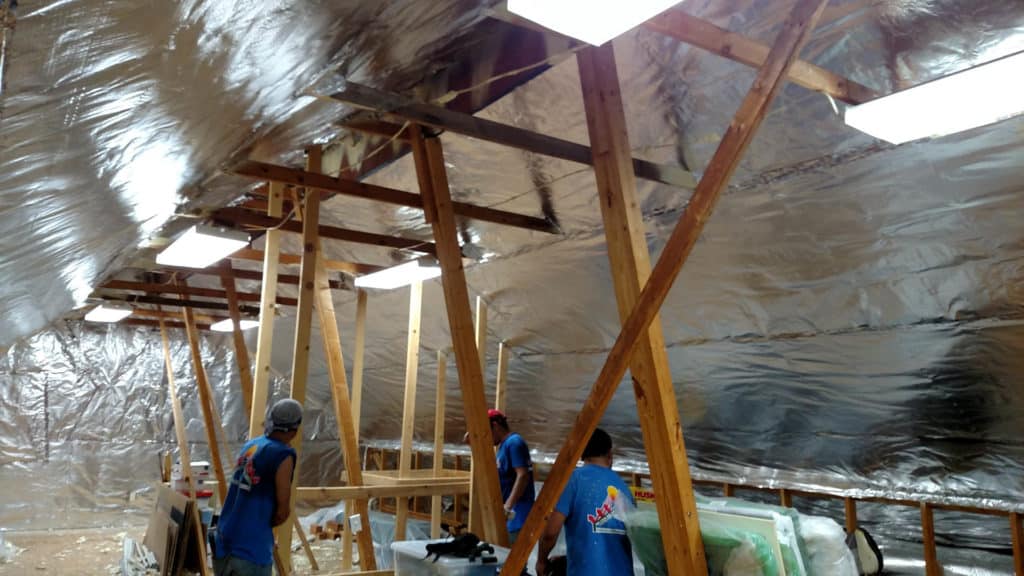Insulation is one of those unsung heroes of our homes that we often take for granted. Can you imagine sweltering summers or icy winters in Houston without a well-insulated home? Probably not. But how does one select the best Insulation Contractors Houston and ensure the installation goes smoothly? Let’s dive into the world of insulation in Houston!
The Importance of Proper Insulation
Ever wondered why your energy bills shoot up during extreme weather conditions? Or why some rooms in your house feel too cold or too hot?
Energy Savings
A well-insulated home acts as a barrier, keeping the desired temperature inside and blocking the outside elements. This means less reliance on heating or cooling systems, leading to significant savings on energy bills. Think of insulation as a snug blanket wrapped around your house!
Comfort Throughout the Year
While saving money is fantastic, the comfort a well-insulated home brings is incomparable. No more chilly floors or overheated attics. Just consistent, pleasant temperatures year-round.
Types of Insulation Commonly Used in Houston
With Houston’s unique climate, not just any insulation will do. Let’s look at the top contenders.
Spray Foam
This is a popular choice due to its seamless coverage and high R-value. Spray foam expands upon application, ensuring no gaps or cracks remain.
Blown-In
Ideal for retrofitting older homes, blown-in insulation fills in those hard-to-reach spaces with ease.
Batt and Roll
These pre-cut sections fit perfectly between wall studs, making them ideal for new constructions.
Radiant Barrier
With Houston’s scorching summers, a radiant barrier, often installed in attics, reflects heat away from the home, reducing cooling costs.
Selecting the Right Insulation Contractor
Choosing the right contractor can be daunting, but here’s a cheat sheet to make it simpler.
Research and Reviews
Do your homework! Look for reviews online and ask for references. Happy customers often mean reliable service.
Licenses and Certifications
Ensure your contractor is licensed and certified to work in Houston. This not only guarantees their legitimacy but also ensures they’re up-to-date with local building codes.
Experience and Expertise
Has the contractor worked on homes similar to yours? A proven track record can give you peace of mind.
The Installation Process
It’s not just about slapping on some insulation. Here’s what you can expect.
Assessment and Measurement
Every home is unique. A professional contractor will first assess your home’s needs and measure accurately.
Prepping the Space
Before installing, spaces are cleared of any old insulation or debris to ensure the new insulation adheres perfectly.
Installation Techniques
Depending on your chosen insulation type, contractors may use specialized techniques for the best results.
Post-Installation Care and Maintenance
Once installed, insulation requires minimal maintenance. However, it’s good practice to periodically check for any signs of wear or damage, especially after extreme weather events.
Conclusion
Choosing the right insulation and contractor in Houston can make all the difference in your home’s comfort and energy efficiency. Whether retrofitting an older home or insulating a new build, the steps outlined above will ensure you make informed decisions every step of the way. Remember, insulation is an investment in your home’s future – choose wisely!
FAQs
- How long does the insulation installation process take?
Typically, for an average-sized home, it takes a day or two. However, it can vary based on the type of insulation and home size. - Is there any insulation specifically designed for Houston’s climate?
Yes, radiant barriers are often recommended for Houston homes due to the intense heat. - How often should I check my insulation for damages?
A general rule is to check after any major weather event or at least once a year. - Can I install insulation myself?
While it’s possible, hiring a professional ensures optimal performance and adherence to local building codes. - What’s the average cost of insulating a home in Houston?
Costs can vary based on the type of insulation and size of the home. It’s best to get a few quotes from local contractors for an accurate estimate.


